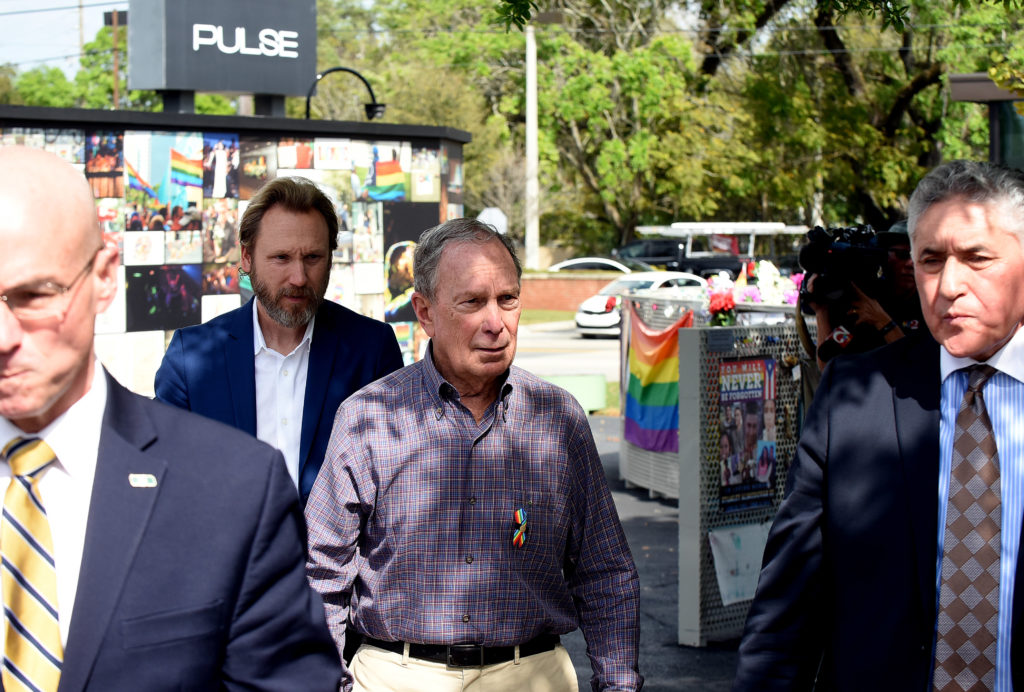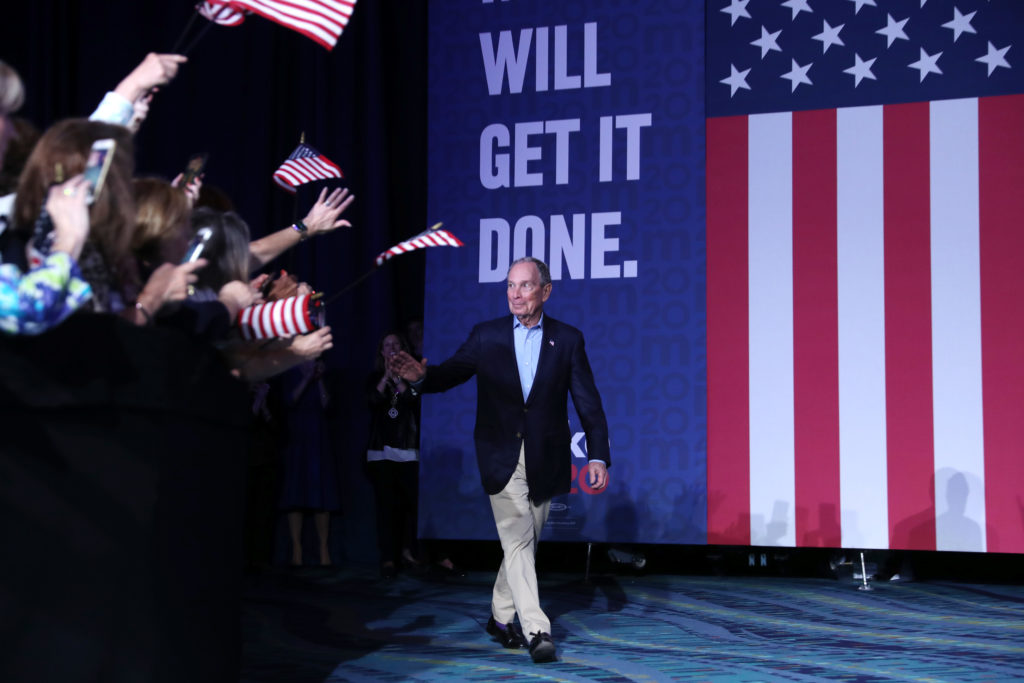Michael Bloomberg drops out of presidential race after a lacklustre campaign mired with transphobic undertones

Former New York City mayor Michael Bloomberg has dropped out of the Democratic presidential nominations, endorsing Joe Biden. (Joe Raedle/Getty Images)
Michael Bloomberg, the billionaire former New York mayor who barrelled into the Democratic presidential nominations armed with more than half a billion dollars of advertising spending, has suspended his lavish but lacklustre campaign and endorsed former vice president Joe Biden.
The 78-year-old announced Wednesday on Twitter his decision to bow out. Noting that his reason to enter the race last November was the very same reason for his departure: “To defeat Donald Trump.
Three months ago, I entered the race to defeat Donald Trump. Today, I'm leaving for the same reason. Defeating Trump starts with uniting behind the candidate with the best shot to do it. It's clear that is my friend and a great American, @JoeBiden. pic.twitter.com/cNJDIQHS75
— Mike Bloomberg (@MikeBloomberg) March 4, 2020
“Defeating trump starts with uniting behind the candidate with the best shot to do it. It’s clear that is my friend and a great American, Joe Biden.”
His self-branding of being the billionaire ‘anti-Trump’ saw him initially surge in the polls.
But stung by poor poll numbers in Super Tuesday, the media tycoon, worth an estimated $60 billion, brought an end to a campaign typified with big budgets, blanketing the country’s airwaves with promotional ads and, of course, seeing a video where he referred to trans people as “it” resurface.
Michael Bloomberg ran a campaign of big budgets, ambitious LGBT+ rights promises and transphobia.
Bloomberg’s late entry into the race roiled an already unsettled field of candidates.
Hoping to win over sceptical liberal voters, he presented himself as the sole candidate with the financial wheelhouse to beat US president Donald Trump.
Wrapping up his brief but costly campaign – staked on self-funding with his vast fortune – he may have gone from late entrant to double-digits in the polls, he ultimately failed to poach the poll numbers from fellow moderate Biden.

Michael Bloomberg departs after visiting the Pulse memorial with Fred and Maria Wright, whose son, Jerry Wright, was killed during the Pulse shooting. (Paul Hennessy/NurPhoto via Getty Images)
And after Pete Buttigieg and Amy Klobuchar dropped out and centrists coalesced around Biden on Tuesday, Bloomberg was pushed further aside on voter’s radars.
But in his unprecedented attempt to effectively buy the White House seat, it was a campaign mired by his spotty record on trans rights.
As mayor, Bloomberg was a firm supporter of LGBT+ rights, but drew bipartisan criticism after a video from 2019 of him calling trans people “it” and “some guy in a dress” at a forum shook his campaign.
His campaign team – one of 2,400 staff spread across hundreds of offices – also faced accusations of homophobia for a bizarre venture to blast Bernie Sanders by saying he as sexual relations with Vladimir Putin.
The businessman met with trans community leaders, issued an apology and even flogged $22 trans rights t-shirts on his campaign gift shop in an attempt to make amends.

Michael Bloomberg, political analysts have said, splintered much of the moderate Democratic voting bloc. (Joe Raedle/Getty Images)
None proved effective, however, as polling data showed just six per cent of LGBT+ voters during Super Tuesday ticked Bloomberg’s ballot box.
Nevertheless, the late entrant presented a fiery policy plan centred on guarding LGBT+ rights, promising to reverse Trump administration’s ban on trans troops, tackle the epidemic of violence against trans women of colour and introduce protections for LGBT+ people in refugee and asylum systems.
The plan also included less clear pledges, such as bolstering broadband access “to support LGBTQ+ people living in rural communities”.

